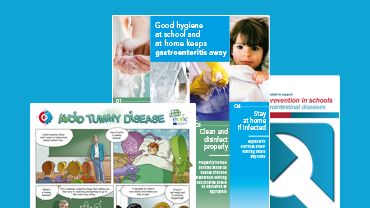Trichinellosis
Trichinellosis (trichinosis) is a disease caused by parasites (roundworms) that can be transmitted between animals and humans. A wide range of animals act as reservoirs of human infection, but the most common in Europe are pigs, horses and wild game such as wild boar. The disease occurs worldwide. In Europe, several Trichinella species are known to occur including T. spiralis, T. nativa, T. britovi and T. pseudospiralis.
Humans become infected by consuming raw or undercooked meat or meat products containing parasite larvae.
Symptoms vary depending on the number of larvae consumed, ranging from no symptoms to severe or even fatal illness. The initial symptoms of trichinellosis, which can appear 1-2 days after infection, include:
- nausea
- diarrhoea
- vomiting
- tiredness
- fever
- abdominal discomfort
Afterwards, these may follow:
- headaches
- fevers
- chills
- cough
- swelling of the face and eyes
- aching joints and muscle pain
- itchy skin
- diarrhoea, or constipation
Trichinellosis can be treated with suitable anti-parasitic drugs.
Disease prevention is based on accurate meat inspection of all slaughtered pigs and horses, which is mandatory in the European Union, in addition to thorough cooking of meat to adequate temperatures prior to consumption.






